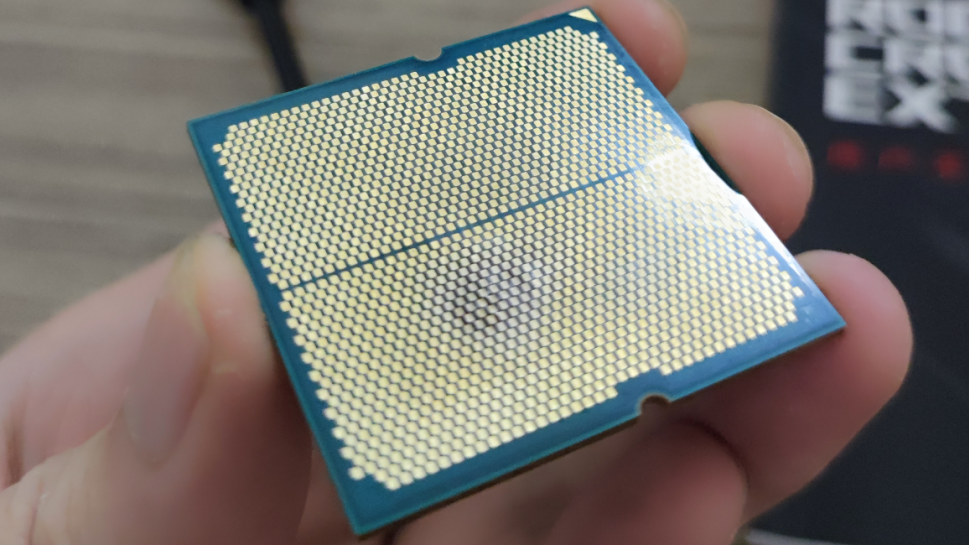
If you’ve purchased one of AMD’s latest gaming processors, like the mighty Ryzen 9 7950X3D or any of its more affordable brethren, you might want to think twice about overclocking it. Reports of the chips burning out – seemingly at random – have been springing up across the internet.
The affected chips quite literally burn out: overheating and expanding dangerously to the point where they not only break, but have also damaged the motherboards they’re seated in.
According to a quote from Asus given to YouTuber Der8auer, the issue is caused by excessive SoC voltages – so if you’re running the chip at stock settings, you should be fine. But overvolting is common practice when overclocking CPUs, and it seems that high voltages are damaging the chips’ thermal sensors; that means the processor can’t detect dangerously high temperatures and throttle accordingly.
These voltages can obviously be set manually, but plenty of people will overclock their CPUs using pre-programmed EXPO profiles in their motherboard BIOS – and it looks like these could also be a threat to your chip’s safety.
The image above shows one of the damaged chips, from user LT-Cc on Chinese social media site Baidu. As you can see, there's a burnt patch on the motherboard interface, and some additional distortion on the right-hand edge. This sort of 'hot spot' damage typically also damages the motherboard socket.
Analysis: A fix is coming, but protect yourself in the meantime
According to Tom’s Hardware, this issue can affect both 7000X3D and regular Ryzen 7000 CPUs, but it’s far more likely to be an issue with the former. The motherboard model doesn’t seem to be a factor either; reports have indicated that the issue could occur with any brand of mobo.
TH’s sources have indicated that a fix is on the way, but there’s been no official word from AMD so far, so we can’t really ascertain a timeframe. A fix would presumably involve a firmware update that imposes a new voltage cap, since it looks like there are safe overvolts that can be used – 1.35V appears to be ‘safe’, but 1.4V or above creates a risk of overheating.
The downside of this is that imposing such a cap on voltage could inadvertently lower the frequency at which users can achieve a stable memory overclock – not something that’s likely to affect the majority of users, since RAM overclocking is a fiddly and often not worthwhile endeavor, but it’ll probably annoy some serious hardware-heads.
In any case, we’d strongly recommend that you stick to the default settings until AMD announces a proper fix. AMD explicitly does not cover damage caused by overclocking in its processor warranties, so if you burn out your chip, you’re on your own.
While the Ryzen 7000X3D series are some of the best processors around for gaming, this is a setback AMD really didn’t need right now – Team Red is still getting roundly spanked by Intel in the CPU arena, even if it’s pushing some excellent gaming laptops with the ‘AMD Advantage’ initiative. I hope a firmware update arrives speedily to resolve this problem – not least because I’ve got a Ryzen 7000 chip in my own PC, and I won’t be overclocking it until this is fixed.







